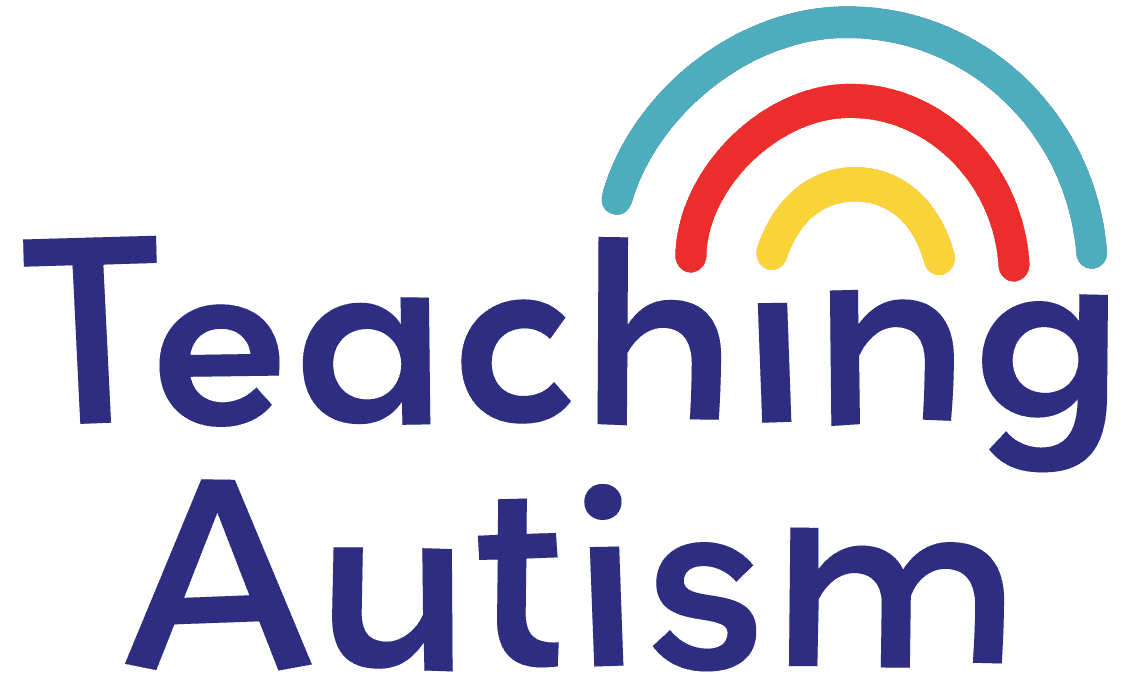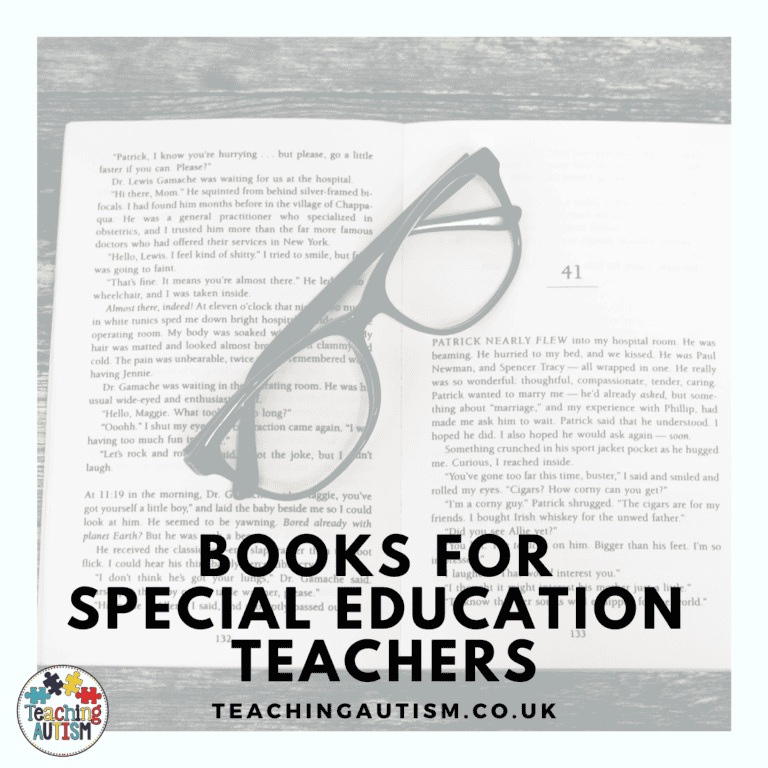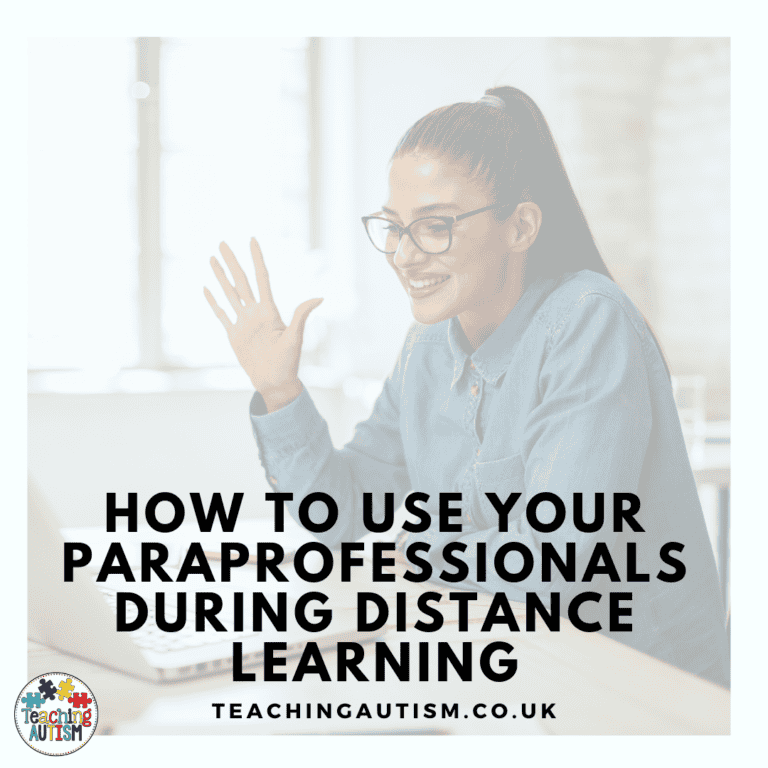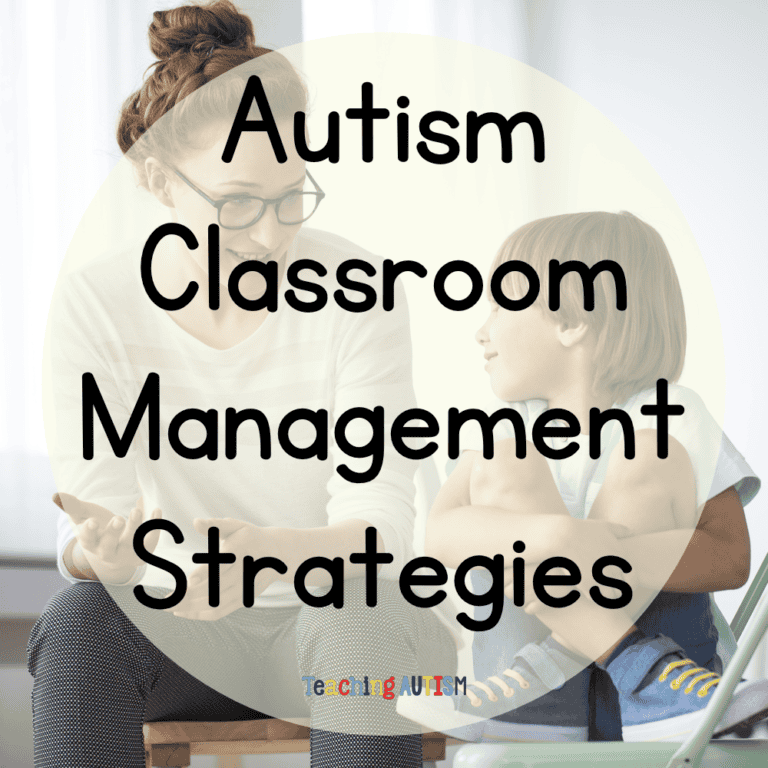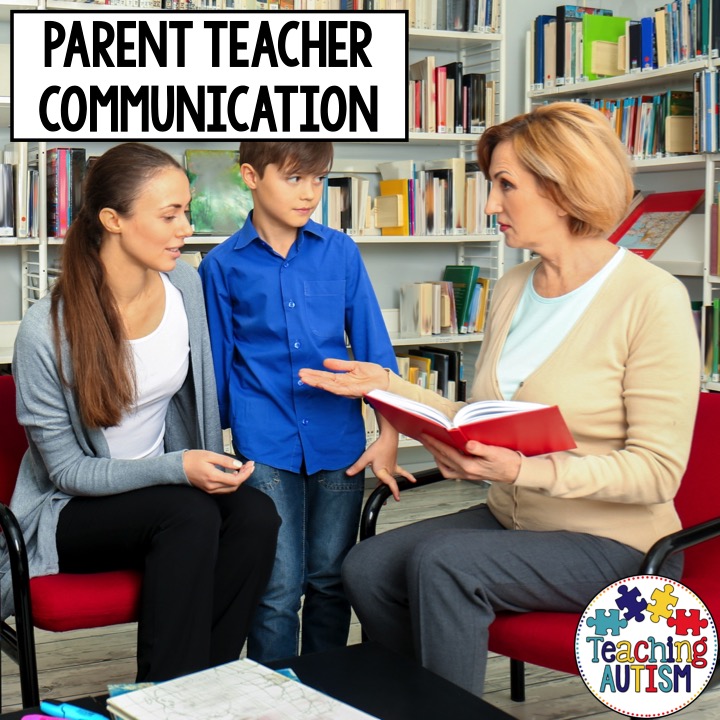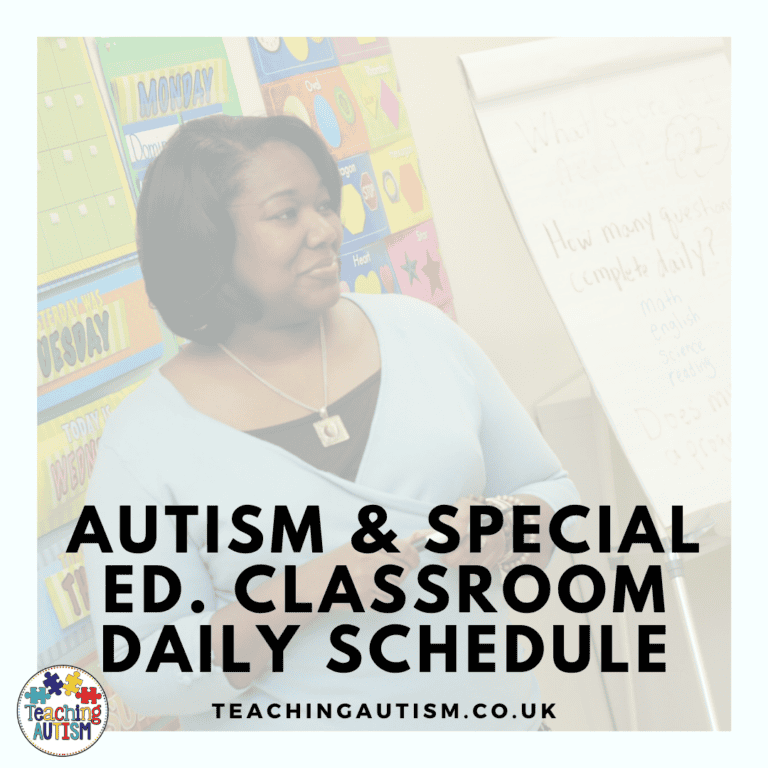Parent Communication for Teachers
One of the hardest things for us to do on top of our usual daily tasks, is to ensure we are communicating effectively with our students families. And today, I want to help you out with that! So I’m sharing my best tips for parent communication for teachers.
Our jobs are actually made a lot easier when we have effective and clear communication with our students families. And it can really help the day to day running of your classroom go more smoothly. Plus, you’ll know more about your students and how you can get the best out of them.
Why Should We Have Good Communication?
If you’re a new teacher or new to special education, you may be wondering why the individual communication is so important. There’s a huge amount of reasons why. But today, I’m just going to share some of my top reasons.
- We spend a few hours a day with our students. But their families spend the rest of the time with them. They’ve brought them up. They have the closest connection and most information about our students.
- It builds trust between you and the family.
- Your families will feel like they are able to talk openly to you and ask for support.
- It helps to avoid any miscommunication.
- You’ll be more comfortable. We all know how awkward it can be when we have to have important conversations with people we don’t really know. Spending time connecting with them through the year will make important conversations more comfortable.
- If you only contact your students families when something has gone wrong, they’re going to start dreading when they see communication from you. Take time to communicate positive messages – what’s working well. What their child did today.
- It will make it easier for us to ask them for support if we need it.
- IT all has a huge positive effect on the student when everyone is communicating, has a positive relationship, and is working together.
But, How?!
Now you’ve read all those benefits. You’re probably in agreement that communicating effectively with families is important. But, how are you going to do it? What’s the best way to communicate with them?
Don’t worry! I’m here to share some of my best tips for what’s worked for me over the years. But first, I want you to have a think about your students and classroom.
- How do you communicate with your students families now?
- When do you communicate with them? Is it daily, weekly or monthly? Do you only communicate on parents evening?
- How many students do you have?
- What way do you find easiest to communicate?
When to Communicate
Ideally, daily communication is best. But this is also going to depend on how many students you have as well as your staffing. Think through the following questions to help you come up with when is best for you to communicate with parents.
- What part of the day will you communicate?
- Who will communicate? Will you write quick notes through the day and your staff can fill in the communication logs on your behalf?
- Can you use your staff at the end of the day to run a session? Then, you’ll have time to sit down and fill in communication logs.
How to Communicate
Home/School Communication Books
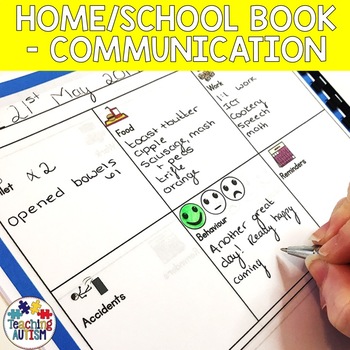
This is still my go-to for communication. A book that goes back and fore school and home has always worked well for me and my students families. I have everything printed and bound into a book at the beginning of the year. Then, I fill it in at the end of each day.
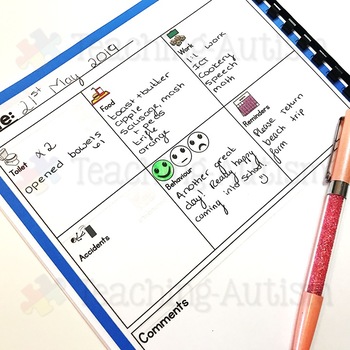
This is what the daily communication pages look like in my home/school communication book. The boxes set up ready makes it quick and easy for me to fill in all of the details. And then, there’s a comments section on the bottom for anything else that needs communicating. My students families sign and date the bottom of each page to show that they’ve read it – and there’s space for them to write back and communicate anything with us too.
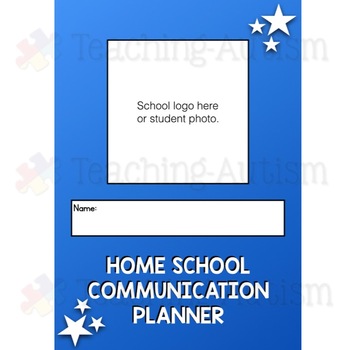
This is the front page of our communication book. We put a photo of our students and their name on the front. But you can easily put a school logo on here instead.
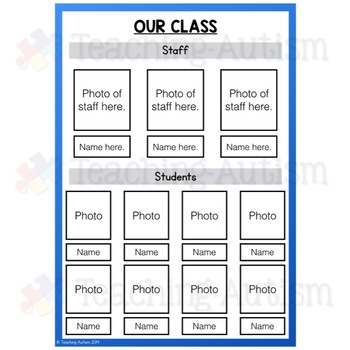
I also like to include a page for our students and staff on. This helps our families become more aware of who is in their child’s class.
If you want to know more about this home/school communication book or get it for your classroom, check it out here.
Newsletters
We all know how busy school life can get. Especially with upcoming holidays, events, days off. There’s so much for us to communicate home. This is where I love to use a monthly newsletter. You can send it out more regular if you wish, but I send mine out towards the end of the month about the next month.
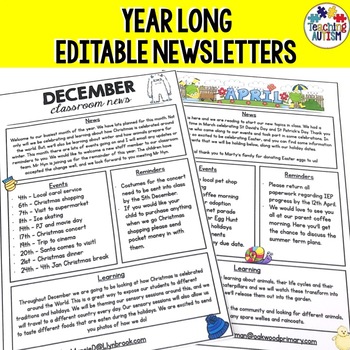
Having a newsletter makes it easier for you to communicate all of those important events and details. And it saves you writing them out in all of your students individual books.
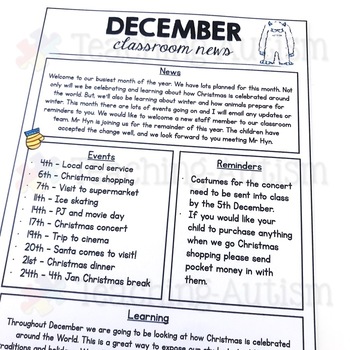
You can choose to email these home or print them out and send them home.
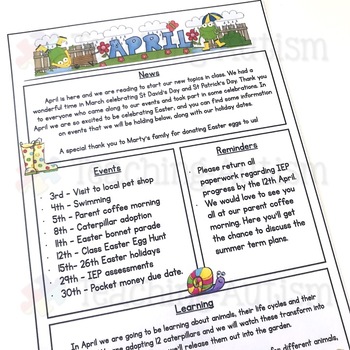
You can get these editable newsletters here.
Weekly Reflection
Every Friday, we add 3 photos of each student onto a worksheet. My students then use a symbol writing programme to write about what they did that week. This is differentiated for each of my students. For some of my students, they’ll write independently, using the pictures as prompts. Others will have us write a sentence on a whiteboard and they copy it. While others will have teachers type with them.
This then gets stuck into a ‘Photo Album’ textbook. It’s great to look back on at the end of the year for us to see how much our students have achieved. And our students families love looking through all of it!
Coffee Mornings
We do coffee mornings every few months in our school. And it’s a great way for us to connect with our students families in an informal way. Everyone comes along and donates some money to a local charity. Plus, who doesn’t love a chat over some coffee and cake?
Our students join in as well and help to bake some goodies that we can all share around the table.
How do you ensure you have effective and positive communication with your parents? Let us know in the comments down below. And if you found these tips helpful, be sure to share this post with your friends and colleagues.
Don’t forget to tune in to our weekly podcast for more special education and autism tips.

